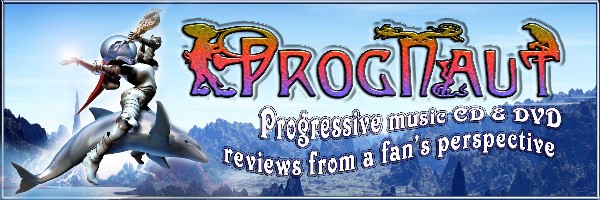1. Who is the band? What is their history? What motivates them?
Perhaps the most fitting way to describe Copernicus is as a performance poet. Even though he (originally named Joseph Smalkowski) plays keyboards, Copernicus refuses to be categorized as a musician. Despite often having inhabited the alternative New York rock'n'roll scene, his music also exudes strong elements of jazz, classical and the avant garde. Even though Copernicus' preferred recording strategy is that of improvisation, his epic pieces tend to revolve around themes, riffs and repeated clusters, moving along a clearly linear pathway” (Copernicus, 2009).
“The booming delivery and abstract texts evoke the spirit of classic beat generation poetry, but the Copernicus stance goes back even further to the theatrical confrontations of the Dada movement. He's always preferred the improvisatory approach, even though each poem's grist might be prepared in advance, their rhythms and content might be disassembled in the moment” (Copernicus, 2009).
“Copernicus has always been fiercely independent, since he first started recording in this manner, back at the dawn of the 1980s. He organizes the recording sessions, sculpts the assembled band, oversees the album artwork and releases each disc on his own Nevermore, Inc. label. 1985 brought Nothing Exists, which emphatically laid out the themes of his subsequent work. A burst of creativity led to the swift succession of Victim Of The Sky (1987), Deeper (1989) and Null (1990). Often, Copernicus would perform with large-scale ensembles, but in 1991 he initiated the practice of giving completely solo performances, revealing his declamations in a stripped, confrontational space. He views himself as a conduit for abstract ideas and philosophical notions. Copernicus decided that his particular marriage of music and narrative was the best way to communicate his thoughts and concepts to a receptive audience” (Copernicus, 2009).
“He released No Borderline in 1993, but there was to be a longer gap before 2001's Immediate Eternity which moved in a completely different direction as its creator was spending increasing amounts of time in Ecuador, where the Spanish version of the album La Eternidad Inmediata was released the same year. The album is followed by 2005 releases of Immediate Eternity II, Die Sofortige Ewigkeit II (in German), L'Eternite Immediate II (in French) and La eternidad inmediata II (in Spanish). Copernicus was evolving after having spent three years penning his book, also called Immediate Eternity. He linked up with Los Nomadas from Guayaquil, the country's biggest city, and his music moved temporarily more towards the zone of jazz-rock fusion. Now, with disappearance, Copernicus has made a return to the old established methods, refining them into what is probably his key distillation of an ongoing obsession with the freedom and beauty of nothingness” (Copernicus, 2009).
2. Why did they make this album? What was the passion or message that forced them to produce the album?
Great question. It’s like Frank Zappa meets Jim Morrison. But definitely not my cup of tea.
3. They have? Or, simply what was their motivation for the themes they chose for this album?
The themes are the universe and nothingness. The notes, strings, and cords are pulled together to mimic a random universe. If you can imagine listening to the Beatles Revolution Nine, with someone shouting every once and a while about the universe, that is the first two songs.
The Blind Zombies actually has some intermitting rhythm and some flute and violins making it the standout for this album and one of the few I would personally classify as music.
Humanity Created the Illusion of Itself is mostly spoken word, with some woodwinds and strings thrown in. Some of the same kinds of ideas brought out by early Jethro Tull on Aqualung and Thick as a Brick, but with allot less musical inspiration.
Atomic New Orleans is a bluesy jazz beat set to spoken word. Nothing but “feel the atoms..” and some guitar and sax. “Hey New Orleans do you have any atoms down there?” “Protons and neutrons speeding at the speed of light.”
“Poor Homo Sapiens getting up every day and finding themselves trapped in the horror dream of false identity” gets repeated several times to horns and guitars for the second to last song.
Revolution II, the epic opens with drums and synths. Over 20 minutes of noise and spoken word. Back to number nine numbing sound. I always thought I was pretty open – minded but this convinced me that I was wrong.
4. What message are they delivering through their lyrics and music?
The universe is a random mix of chaos set to the noise of instruments. If you are into that then you will love this.
5. Does this music improve, change, or add to the genre? What does the listener receive from listening to the music?
Not really sure what genre this fits into. Parts sound like comedy, some just poetry, a little music here and there, but without real connection for me.
6. Does it have longevity? Is it something a fan will like to play again and again?
I struggled to get through this. I was so happy when it was over.
Rating: 1/10 – I think I said enough already.
Reviewed by Prof on September 9th, 2009

